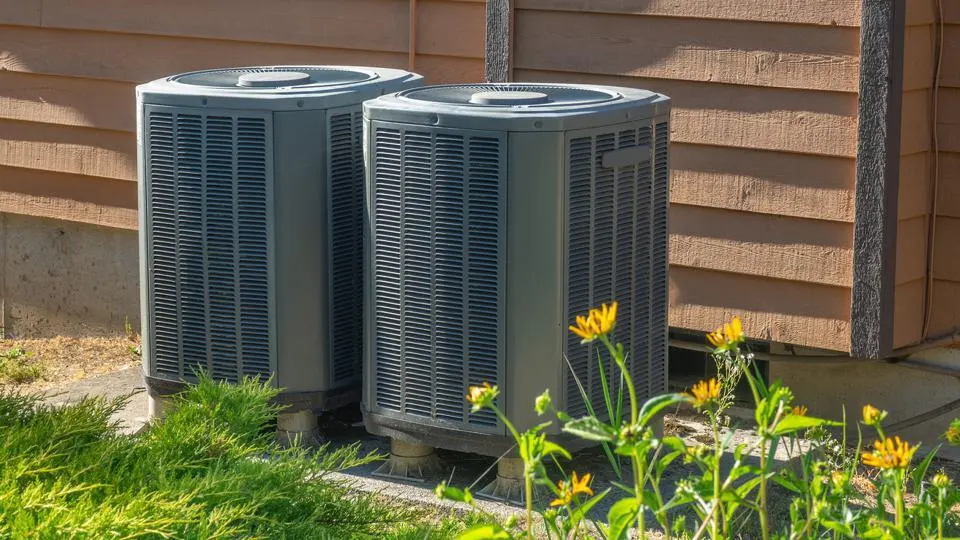
Energy-Efficient HVAC Options And Their Cost-Effectiveness
admin
- 0
Climate change is an increasingly pressing problem and one that requires creative solutions. One way to reduce the impact of global warming is to invest in energy-efficient HVAC systems. These systems can reduce greenhouse gas emissions while also being cost-effective. In this article, we delve into the different types of energy-efficient HVAC options available and assess their relative cost-effectiveness.
Popular Energy-Efficient Options
One of the most popular energy-efficient HVAC options is a high-efficiency air conditioner. These types of air conditioners are designed to run with less energy and deliver more cooling power compared to standard units. High-efficiency air conditioners have higher Seasonal Energy Efficiency Ratios (SEERs) than standard A/C models, so they help reduce your heating and cooling costs significantly. This type of air conditioner also features advanced technologies like two-stage compressors, variable speed fans, and programmable thermostats which can further improve efficiency.
Another cost-effective option for an energy-efficient HVAC system is geothermal heat pumps. Geothermal systems use pipes buried underground to transfer thermal energy from the earth into a home or building for heating or cooling purposes. These systems are extremely efficient because they do not require burning fossil fuels like other traditional HVAC systems do – thus resulting in much lower operating costs over time. In addition, geothermal systems are known to last much longer than conventional ones due to their durability and lack of outdoor components that could be damaged by weather elements over time. If you are looking HVAC system All Climate Mechanical Coon rapids provides geothermal installation, service and maintenance.
Cost Comparison
When it comes to the cost of energy-efficient HVAC systems, several factors come into play. Upfront costs vary depending on the type of system that is chosen and the size of the home or business where it will be installed. Installation and maintenance also need to be factored in when considering the total costs associated with these systems.
The long-term savings that energy-efficient HVAC systems provide can often outweigh short-term upfront expenses. While more expensive than standard options, they are a better value as they lower energy bills over time. Many models also qualify for tax credits and other incentives which can offset some initial installation costs. Additionally, extended warranties may reduce repair costs in case of any major issues down the line.
Overall, while energy-efficient HVAC systems require a larger upfront investment than standard options, their ability to save money on monthly bills makes them a worthwhile option for those looking for increased efficiency over time.
Maintenance Considerations
Regular maintenance of HVAC systems is an important factor to consider when choosing an energy-efficient option. Without regular checkups and tune-ups, it is possible for these systems to become inefficient and costly to operate. Regularly scheduled maintenance should include cleaning or replacing filters, checking the refrigerant levels, inspecting electrical connections and ensuring that all components are in proper working order. It is also important to inspect ducts and insulation to ensure they are not leaking air or allowing heat transfer outside the building envelope.
Additional considerations for maintaining energy-efficient HVAC systems include regularly checking thermostat settings and scheduling seasonal maintenance services such as furnace inspections. AC services are available for a fee at our heating and air conditioning maintenance service. Also, many modern HVAC systems come with their own digital monitoring capabilities that can provide feedback on system performance – this data can be used to quickly identify any issues or problems before they become serious enough to warrant expensive repairs or replacements. Ultimately, these cost-effective measures can help reduce utility bills while keeping your home comfortable year-round.
Conclusion
In conclusion, energy-efficient HVAC options are often a cost-effective and smart investment for many homeowners. Not only do these systems help lower energy bills, but they can also be beneficial to the environment. Furthermore, there are a variety of options available depending on the homeowner’s needs, budget, and preferences. From solar HVAC systems to heat pumps and more, there is sure to be an option that fits any situation. Ultimately, investing in an energy-efficient HVAC system can lead to long-term savings on both energy costs and maintenance expenses over time. It’s important for homeowners to weigh their options carefully before making a decision so they understand all the associated costs and potential benefits of each system.

